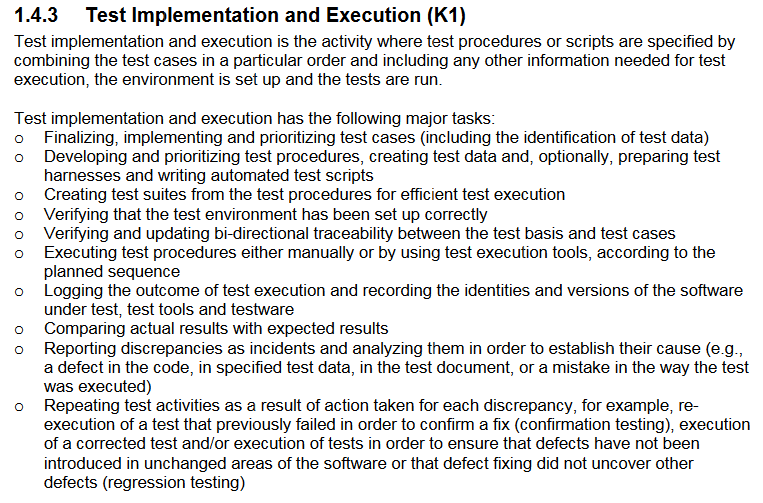Fact checking: “Is testing certification worth it for getting a job?”
Preamble
Let me begin with a scene from a book of my childhood..

Image text below.
Banner reads: “Of the London and Continental Theatres, In their Thrilling Tragedy of “THE KING’S CAMELEOPARD, or THE ROYAL NONESUCH ! ! !” Admission 50 cents.
“Then at the bottom was the biggest line of all, which said: “LADIES AND CHILDREN NOT ADMITTED.”
“There,” says he, “if that line don’t fetch them, I don’t know Arkansaw!”

Twenty people sings out:“What, is it over? Is that all?”The duke says yes. Then there was a fine time. Everybody sings out, “Sold!” and rose up mad, and was a-going for that stage and them tragedians. But a big, fine looking man jumps up on a bench and shouts:“Hold on! Just a word, gentlemen.” They stopped to listen. “We are sold—mighty badly sold. But we don’t want to be the laughing stock of this whole town, I reckon, and never hear the last of this thing as long as we live. No. What we want is to go out of here quiet, and talk this show up, and sell the rest of the town! Then we’ll all be in the same boat. Ain’t that sensible?” (“You bet it is!—the jedge is right!” everybody sings out.) “All right, then—not a word about any sell. Go along home, and advise everybody to come and see the tragedy.”
—-
(If you haven’t recalled the scene or haven’t read the book, here’s where to get to it online: The Adventures of Huckleberry Finn. End of Chapter 22, page 152.)
—–
My take on testing certifications..
Finally, I got to the certification-related questions on Quora. Weighed in. Warning: you may not like it.
I’m not against good certifications but I despise misleading people. In my professional opinion, a certification only matters if obtaining it is a long and difficult process based on skills development and practical evaluation.
This is not the case with software testing certifications.
People selling them want you to believe that certification makes you this –

While in fact the certification makes you one of these –

And you’re risking to end up like this –

Image credits.
- License To Kill
- New York’s temple of reuse: A visit to Materials for the Arts
- Mannequins lie in a pile of rubble
Addressing pro-certification arguments
You have nothing to show on resume if you’re fresher.
-Not true. You have tons of options for learning and showcasing. See below.
HR and recruiters don’t find your resume powerful.
-True for commodity recruiters. But again, if there’s a 1,000 of resumes just like yours what makes you think that they will choose you? Nevertheless, no certification will save a dull resume and compensate for poor interview skills.
You’ll be able to understand some fundamentals of testing and also know about the standards that are followed in testing.
-Now ask yourself. Will having read Kamasutra grant you fundamentals of sensual and emotional experiences being with a significant other? Will looking at the pictures grant you any skill in that?
You’ll test your skills in exam.
-Memorizing answers to multiple choice questions is not a testing skill. Testing is about asking questions.
We could make good use of certificate as a filter when we have many candidates.
-I see, that’s hiring manager speaking. But, Mister, such a statement makes you sound lazy! Interview is a two-way road. Is this the main trait you wanna showcase?
Besides, if you have many candidates, you probably wanna choose the best. As we established, certification is a sign of commodity; how will it help you to find a best talent and performer?
Having a certification will not harm.
-If you’re paying your own money it’s already a loss. You could have invested them into a real and practical testing training. If your employer is paying – watch out: your role is being treated as a commodity. Next step is to replace it with the cheapest bid.
If you are interviewed by a non-technical person certification will make a difference.
-If the interviewer is a “non-technical person” how they’re supposed to evaluate technical definitions from the curriculum? If anything, your interpersonal skills will help you to make a difference.
It gives you some confidence, before getting a candidate in for an interview, that they at least have some basic knowledge and will know standard testing terminology.
-OK, an input from another hiring manager. Interesting point: years of experience in the resume ain’t good as a proof of “basic knowledge” and certification logo is?
Besides, there’s no “standard testing terminology”. Each company is free to use their own definitions and so they do. Even with such fundamental entities as “bug”, “test case”, “severity”.
It is industry standard certification accepted across the world, it will give you an edge over others when all are even at their interview.
-No, it’s not and it won’t.
Large players do not recognize testing certifications. They’re certification negative. Read further: Gayle Laakmann McDowell Answer to Are certifications for software engineers worth it?
When “all are even” people make a decision based on the personal impression. Hiring managers are people.
Certifications help us expand our knowledge base beyond that of our everyday tasks.
-Learning is what helps us expand our knowledge. Read blogs, read books, participate in tech meetups and conferences. Practice and think about testing. Certifications are very poor substitute for learning.
Certification teaches standardized testing process.
-There is no such thing as “standardized testing process” simply because there’s no standardized development process.
Learning – practically, through exercises – what are the common techniques will help you much better. Which certification or certification training offers real hands-on training in testing techniques?
There are few highest paying sectors where ISTQB is a prerequisite (Banking companies, e-commerce, etc).
-I’d like to challenge that.
First, even the proponents of certifications agree that it matters most for getting an entry level positions. Such jobs are not “highest paying” regardless of the sector.
Second, it’s not a universal truth that banks or financial companies offer highest market rate for testing jobs. In fact, I know plenty of examples when the rate offered was below the market average.
Third, it’s not a universal truth that having a certification is a “prerequisite”. Even in this thread of answers hiring managers say that it might be “nice to have” but totally won’t matter comparing to the experience and skills of a person.
Update 1. Addressing questions I received in the comments.
What are you challenging about the actual content in the syllabus?
-First things first. I don’t need to challenge “the actual content in the syllabus”. Because I challenge the idea that memorizing definitions has any value, if it’s done without practical experience with the activities described.
Second, as a fun exercise. To my understanding, there’s the “Foundation Level Syllabus” from istqb.org website. Here are examples of incomplete, misleading, and erroneous definitions in the syllabus.

- Where is accessibility testing? Accessibility is a standard term, and so is accessibility testing. If anything, there are laws and regulations in Europe (ISTQB originates there) requiring software products to be accessible for people with disabilities. So this is not only important quality but a potential risk of a lawsuit.
![]()
- And this is your definition of security testing? And this is your example of a threat? It’s not even in OWASP 10. You’d be better off stealing definition of testing from the OWASP Guide!
Testing is a process of comparing the state of a system or application against a set of criteria. In the security industry people frequently test against a set of mental criteria that are neither well defined nor complete. [..] It can be helpful to think of software development as a combination of people, process, and technology. If these are the factors that “create” software, then it is logical that these are the factors that must be tested. [..] Unless a holistic approach is adopted, testing just the technical implementation of an application will not uncover management or operational vulnerabilities that could be present. By testing the people, policies, and processes, an organization can catch issues that would later manifest themselves into defects in the technology.


- OK, 35 – thirty five! – minutes is allocated for learning how to perform testing. And neither in this section – nor anywhere in the document! – I could find an explanation how testers actually identify software problems. Don’t bother telling me “by comparing actual results with expected results”.
Update 2. A discussion at The Ministry of Testing.
[2017/03/27] Linking a high quality discussion unfolding at the Ministry of Testing. It’s really worth checking out.
How to learn testing skills, showcase yourself, gain reputation, and secure your employment
- Attain skill based training. Among the most practical, affordable, available – and valuable, I suggest Cem Kaner’s Black Box Software Testing courses. AST offers it online: AST-BBST Courses. As a bonus, you’ll make acquaintances in the testing community!
- Speaking of communities.
- Join Software Testing Club and practice at Testing Dojo at the Ministry of Testing
- Join Association for Software Testing
- Attend international testing conferences and local testing meetups
- Read testing blogs
- Read books! We have a lot of great books in the industry, pointing to just a few –
- Domain Testing Workbook by Cem Kaner and co-authors
- Explore It! by Elisabeth Hendrickson
- Web Testing Basics – How To Test A Website by Rob Lambert
- Go strategic! Testing is a hands-on activity, but it has much more to it than just pounding a keyboard. Read Gerald Weinberg’s book Perfect Software and Other Illusions About Testing. I guarantee it’ll become your hand book on testing strategy.
- Create what you consume!
- THINK about what you read and learn. WRITE IT DOWN.
- Start a journal of your learning experiences.
- Start a blog, share your ideas publicly.
- Engage in testing meetups and present yourself.
- PRACTICE
- Start right now. How can I start learning about manual testing in a practical manner?
- Participate in testing challenges.
- There’s a movement dedicated to software testing craftsmanship. Professionals and newbies around the globe gather for Weekend Testing practice – to learn new skills and share experiences. Look up the nearest (by timezone) chapter and Skype in! Now on Twitter as well.
- Not specific to testing but nevertheless critical: attain people skills
- Not specific to testing but absolutely a must: master the job search process, from resume writing to creation of professional digital identity, from being interviewed to interviewing others.
On Advertisements
I run Google Ads in my blog. They show content based on mumbo-jumbo rules supposedly matching interests on the visitors, not me. If you ever see here an ad about testing certifications or like – and wanna get rid of it – email me (agidale dot info domain gmail dot com) the url from the ad. I’ll ban it :)



5 responses to "Fact checking: “Is testing certification worth it for getting a job?”"
[Albert’s comments inline]
Don’t confuse a certification with a class.
– Howdy, stranger! I don’t think I have :)
You said a BBST course is a better alternative to the certification. Yes, any course is better than memorizing basic content. There are actually some good courses that prepare for ISTQB with people that give practical examples and challenge your way of thinking.
– And there are some very poor courses that guarantee passing ISTQB test. Are we gonna play sampling bias here?.. As I wrote I wholeheartedly support recognition of skill based training. That is NOT the case with ISTQB.
You can challenge the idea of a certification…that’s easy and cool in some circles.
-I do not challenge the idea of certification. I challenge irresponsible claims and myths around it. I frown upon misleading of people being in a vulnerable situation, i.e. needing a job.
What are you challenging about the actual content in the syllabus?
-Honestly, I don’t give a bug about *that* syllabus. I have my own, experience based syllabus, which I didn’t have to memorize. And with every client of mine we’re establishing our shared understanding and syllabus.
But, I took time to go over istqb syllabus – it’s a joke. See my notes added in the blog post.
James Bach attempted to challenge one of the black box testing techniques, but all he really did was say that it’s ineffective (and possibly dangerous) in the hands of someone who doesn’t understand it.
-It’d be interesting to read that in his own words. Any reference?
Thanks for taking time to comment and sharing your perspective. Albert
[Albert’s comments inline]
A fun post to read.
-Hi, Amit, thanks for commenting! :)
I want to add one more point to “having a certification will not harm” – I recently found myself interviewing quite a lot of candidates – if I see in the resume “ISTQB certified” (which means CTFL), I will probably pick up on this line and drill the candidate on it a bit – I will check to see if they know what are boundary values, are they familiar with the concept of pairwise-testing and whether they know what a test oracle is – I’m not looking for the ISTQB definition, but will settle for it: if they don’t know what those terms mean, I will hold it against them.
-Thank you, I’ll remember that argument :)
If they hadn’t written down the part on ISTQB certification, I wouldn’t really care if they ever heard of any of those. It matters to me that a person holds true to their CV, obtaining a certificate where you didn’t actually learn anything but rather memorized something simply works against you in an interview. If you are certified and actually understand the basic stuff – you are no better off than without the certification, since being able to understand the basic terms is just dodging a bullet that can harm only certificate carriers (and even if you dodged this bullet, I will want to see how much of the factory paradigm was instilled in you during the certification process – I find that the factory paradigm is mostly conflicting with my way of working).
-Wow! You’re absolutely right about instilling the factory mindset. If I expand my post with dangers of certifications it goes there first!
Thank you for sharing! Albert
The problem with testing “certifications” is that they have become money mills. Pay your money, pass the exam and you’re “certified”. Admittedly I have gone the certification route. In the late 1990’s I petitioned and got one of the early CSTE (Certified Software Test Engineer #105 to be exact) from QAI. There wasn’t an exam originally, it was all experience proof (give examples of work, letters of recommendation from another CSTE or CQA, essay on knowledge, etc.) and it took them months to review and approve. Then in 2000 QAI changed to an exam based system and became a cert mill (like what was happening with the Microsoft certs for MCSE). I “re-certified” in 2002 because my original cert had been “retired”. After that I never re-upped my cert, it was a waste of time and money because the uniqueness of my original CSTE cert was gone.
Now did this ever help in my job searches? Once or twice I was asked about it. In 1997 right after I got my original CSTE cert I interviewed with STLabs in Seattle, and one of the people who interviewed me was James Bach. He saw my information and asked about it. He wasn’t downbeat about it, and I already had years of experience in testing so he saw it as a personal thing to show some commitment to the profession. He even said the CSTE pin I wore on my suit lapel was “quaint”. I even got a job offer later on, but didn’t go because of other reasons. Funny thing is a few years later I ran into James at a conference and he remembered me; both because I had turned him down (as he said “I liked you, but it pissed me off when you turned us down”) about the job at STLabs and that I had that stupid CSTE pin on my jacket lapel.
Bottom line is that the cert held some value to me, but for other people it wasn’t a big thing. I guess I have to look back to my time as a Scuba Instructor, we had a saying “Certified doesn’t mean Qualified.” Which means with experience and continual training (self driven and other) that you will eventually get good at something. That’s my opinion for what it’s worth.
[Albert’s reply: Thank you for sharing your story, Jim!]
So grim, so true, so real. Great read. Can’t agree with you more.
I consider the whole certification activity (i.e. business) to be a cash grab job on the part of some certifying organization that launches the so-called extensions because it has sensed that a trend in software development world can be forked to software testing area (model based, agile, blah blah – am just starting to dread the appearance of mob testing fork since a certain famous tester is so keen on pushing it – sorry, don’t get this idea at all, for reasons I’d rather keep to myself), or split (or maybe multiplied like rabbits breeding) and given a separate life as distinct career paths (the so-called advanced level of some popular certification), or new levels of certification can be added (and it’s already in several flavours) to “reflect” someone’s personal growth as a professional/specialist/anything-else instead on focusing its activity on something that might give true and dedicated practitioners the recognition they deserve from their employers in the first place, on something that would make the so called biz embrace the idea of SW quality assurance and importance of testing (for the world to avoid the silly shift left BS talk) rather than on what it is currently doing (U become “some colour” partner of the org – and we give U our pin and the right to use our logo, we’ll bill you monthly).
Speaking of CTFL, one needs NO experience in the industry to pass the exam, reading the syllabus carefully, taking notes and indulging in some online practice material is enough (basically you need to almost learn the syllabus by heart, since some explanations for correct answers in sample exam materials bluntly say “as per the syllabus” and nothing more – like you said, too much emphasis on memorizing stuff, not enough on understanding or practical application). Also, even if one is a happy foundation level certificate holder (for example), this may have no impact on their working life as a tester/QA guy, the explanation being that the syllabus (and probably the book it was distilled from) is one thing and the daily testing life is quite another, there’s little connection, or who would bother. To finish off, Jeff Nyman once wrote on his blog about certified testers and non-certified folk in the interviewing context and arrived at some interesting conclusions, which, sadly, were not in favour of certain certificate holders.
[Albert: Thank you, Tom.]
Great post! Thank you!
I listened several talks of James Bach on topic, and I agree with what James said, but I think your post is most detailed.
[Albert replies: Thank you, Roman!]